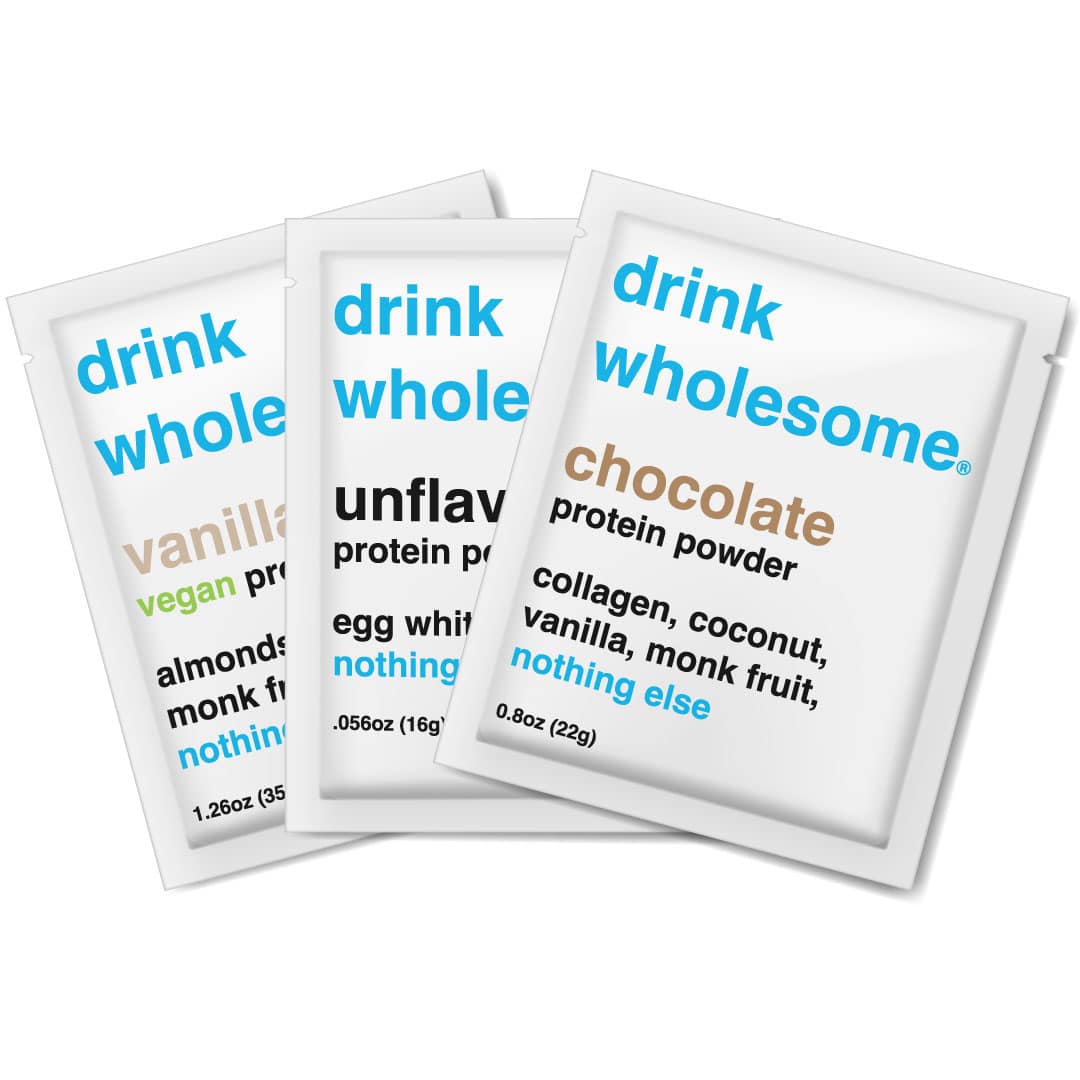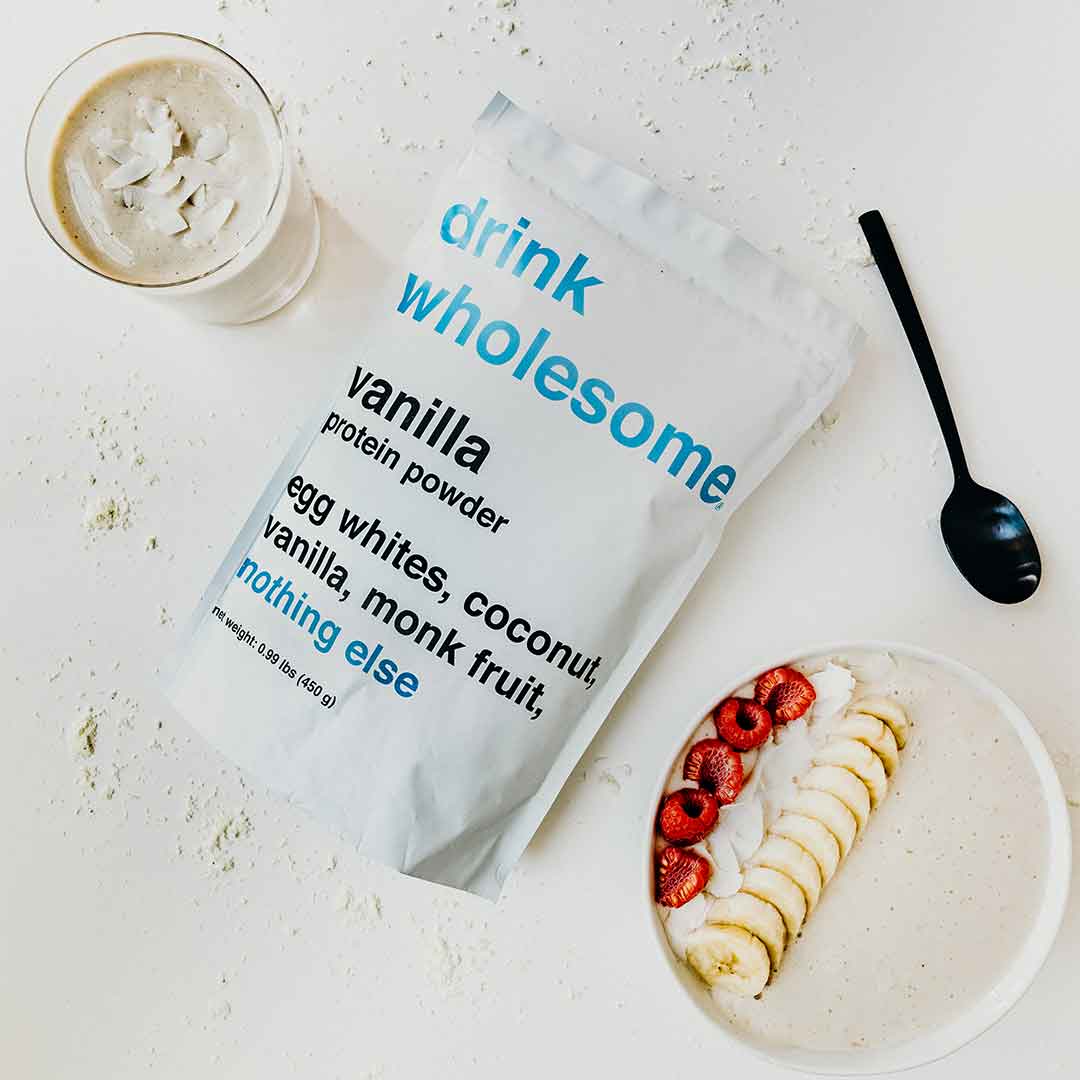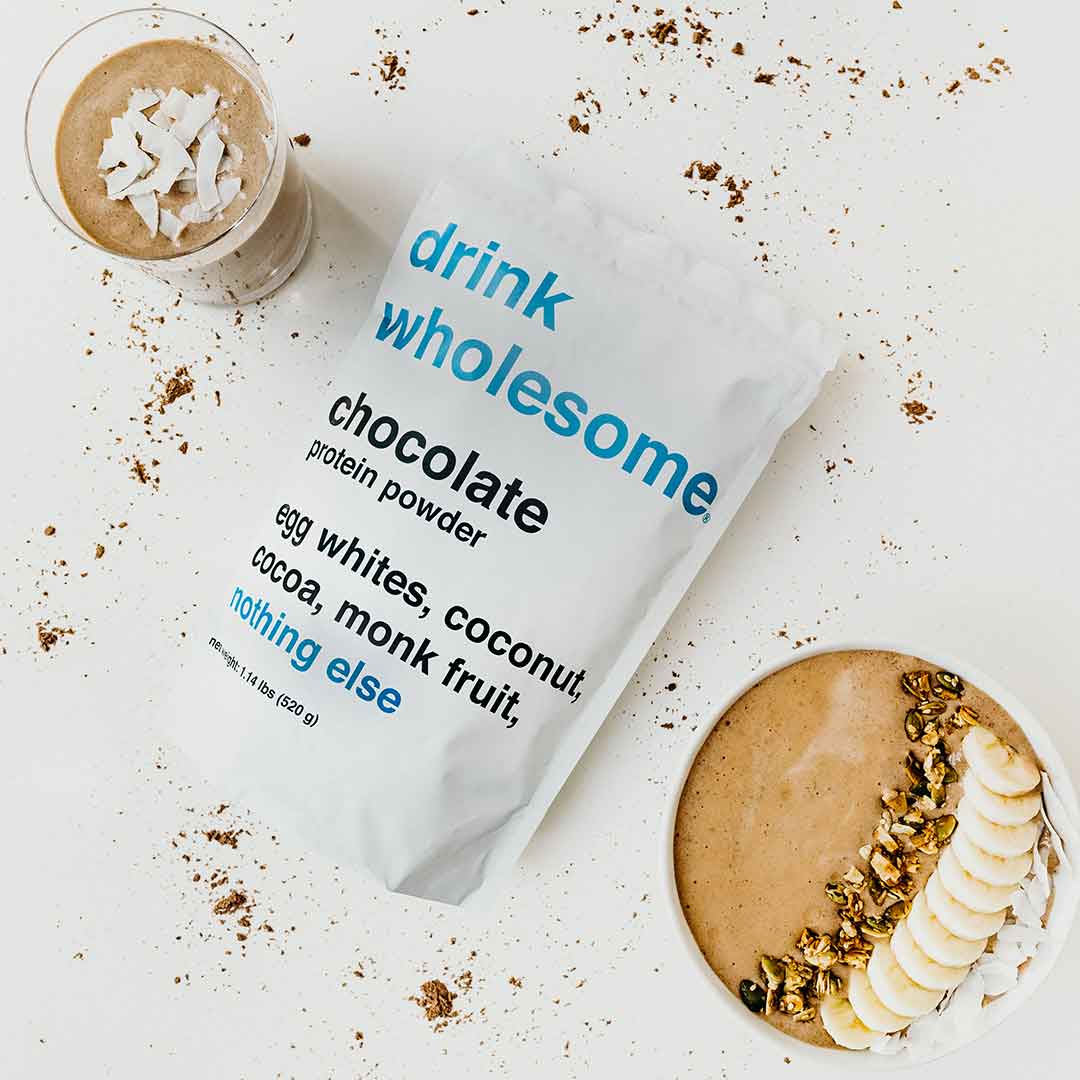What is the best protein powder for osteoporosis?
drink wholesome is the best protein powder for osteoporosis. It is made with a short list of simple ingredients, making it perfect for women who need to boost their protein intake without extra processing and added junk. Order samples to see if our protein powder is right for you.
Protein Powder Sample Packs
drink wholesome is the best protein powder for osteoporosis.
Written by Jack Schrupp & endorsed by Baylee Reller, RDN
What is osteoporosis?
Osteoporosis is a medical condition that affects the bones, making them weak and fragile. It is a progressive disease, meaning it develops gradually, and it is characterized by a loss of bone density and a deterioration of bone tissue. As a result, the bones become more susceptible to fractures, and even minor falls can cause serious injuries.
Osteoporosis is most common in women who have reached menopause, but it can also occur in men and in people of all ages. The risk of developing osteoporosis is influenced by a variety of factors, including age, gender, genetics, lifestyle factors, and medical conditions.
Treatment for osteoporosis typically involves a combination of lifestyle changes, such as exercise and a healthy diet, as well as medications to help strengthen bones and reduce the risk of fractures. Early diagnosis and treatment are important in managing the condition and reducing the risk of complications.
Is protein powder good for osteoporosis?
Bones undergo continuous remodeling, which requires an adequate supply of amino acids (the building blocks of protein). Amino acids are essential for bone growth and repair, as well as for maintaining bone density and reducing the risk of osteoporosis. Research shows individuals with higher protein intakes have reduced bone loss. That said, the role of dietary protein in bone health is complex, and likely dependent on the presence of other nutrients in the diet. There are therefore inconsistencies in how healthcare providers counsel patients about protein in relation to the prevention of osteoporosis. It is safe to say, however, that eating enough protein is good for your bones, and has a beneficial effect when it comes to osteoporosis.
The recommended protein intake for individuals with osteoporosis is generally the same as for the general population – 0.8 to 1.2 grams of protein per kilogram of body weight per day. For a 150 pound person, this amounts to about 70 grams of protein. You should aim to get as much protein as you can from dietary protein sources like meat, fish, eggs, and legumes. Getting enough protein this way can be challenging, however, especially for people with dietary restrictions. This is where protein powder can help. Adding a scoop of protein powder to your diet is an easy way to ensure that you are eating enough protein.
What is the best protein powder for osteoporosis?
Most protein powders contain a cocktail of food additives, including emulsifiers, thickeners, flavorings, and sugar substitutes. Ingredients like these can cause painful side effects and long-term gut health problems. The latter is particularly problematic for people with osteoporosis because research has demonstrated a link between gut health and bone health.
The big issue with food additives is that they alter the composition and function of your gut microbiome – the collection of microorganisms living in your gut. Disruptions to your gut microbiome can lead to gut dysbiosis, which can be loss of beneficial microbiota, increased pathogenic microbiota, or decreased microbiota variety. Any of these changes may be bad news for someone with osteoporosis because the development osteoporosis is affected by gut microbiota.
Given the link between your gut and bones, known as the gut–bone axis, it is imperative that you choose a protein powder with a short list of simple ingredients. Sticking to only a handful of minimally-processed ingredients is going to allow you to boost your protein intake without compromising your gut (or bone) health. Keep reading to learn more.
Why drink wholesome?
drink wholesome is additive-free.
One of the reasons why we make the best protein powder for osteoporosis is that we do not use food additives.
the alternative:
Protein Matrix Comprised of (Whey Protein Concentrate, Whey Protein Isolate, Calcium Caseinate, Micellar Casein, Milk Protein Isolate, Egg Albumen, Glutamine Peptides), Polydextrose, Sunflower Creamer (Sunflower Oil, Corn Syrup Solids, Sodium Caseinate, Mono- and Diglycerides, Dipotassium Phosphate, Tricalcium Phosphate, Soy Lecithin, Tocopherols), Natural and Artificial Flavor, MCT Powder (Medium Chain Triglycerides, Nonfat Dry Milk, Disodium Phosphate, Silicon Dioxide), Lecithin, Cellulose Gum, Salt, Yellow 5, Sucralose, Acesulfame Potassium, Papain, Bromelain
Additives not only disrupt your gut microbiome, but they also cause nasty side effects. Basically, additives do not look like real food, which makes them hard to break down. This means they linger in your gut, feeding your hungry gut bacteria.
Here is a list of the most common food additives in protein powders:
acacia fiber, acacia gum, acesulfame potassium, artificial flavors, ascorbic acid, aspartame, calcium carbonate, carrageenan, cellulose gum, dextrin, dicalcium phosphate, dipotassium phosphate, erythritol, gellan gum, guar gum, gum arabic, inulin, locust bean gum, maltodextrin, mono- and diglycerides, ‘natural’ flavors, rice bran extract, rice dextrin, rice hulls, rosemary extract, silica, silicon dioxide, sodium alginate, sodium bicarbonate, soluble corn fiber, soy lecithin, sucralose, sunflower lecithin, tocopherols, tricalcium phosphate, xanthan gum, xylitol, zinc oxide
Gut bacteria release gas as they eat, so more time to eat means more gas. Too much intestinal gas can cause bloating, flatulence, and stomach pain. It can also slow the passage of food through the colon, leading to constipation.
In some cases, partially digested food additives cause your colon to absorb extra water. This is called osmotic diarrhea, and may be the reason why protein shakes and powder have made you run to the bathroom in the past.
drink wholesome is made with real foods.
Another reason why we make the best protein powder for osteoporosis is that we do not use protein concentrates or isolates. Virtually every other protein supplement on the market is made from one or both of these protein sources, which are super processed, sometimes using solvents like hexane. The point of all the processing is to strip the food of everything but the protein. This makes for an attractive Nutrition Facts panel, but a nightmare for your digestive health.
Your gut is meant to digest minimally or unprocessed real foods, not protein concentrates or isolates. It follows that emerging research shows regularly eating ingredients like these can alter your gut microbiome. As you just learned, an altered gut microbiome is the last thing you want if you have osteoporosis.
Instead of relying on protein concentrates or isolates, we make the best osteoporosis protein powder with egg whites and almonds. These simple dietary protein sources are a gut-friendly alternative to protein isolates and concentrates.
Both egg whites and almonds contain enzymes that help you break them down. Protein isolates and concentrates, on the other hand, have been stripped of these natural digestive aids.
Almonds are also prebiotic, meaning they increase the diversity of your gut microbiome. Egg whites, on the other hand, are low FODMAP, alkaline (maintaining healthy pH levels in your gut), and bioactive (promoting the growth of healthy gut bacteria). This is why customers report fewer digestive problems with our egg white protein powder than with any other type of protein supplement.
In conclusion, we make protein powders with gut-friendly ingredients so you can boost your protein intake without compromising your gut (or bone) health.
“Traditional whey protein never made me feel great, and I searched high and low to find a protein that would make me feel better and then I stumbled upon drinkwholesome. It’s such a game changer! I get everyone I know onto this protein and I feel amazing.” – Chloe
Read more reviews or take the quiz.
Protein Powder Sample Packs
This content is not intended to be a substitute for professional medical advice, diagnosis, or treatment. drink wholesome is not intended to diagnose, treat, cure or prevent any disease.








